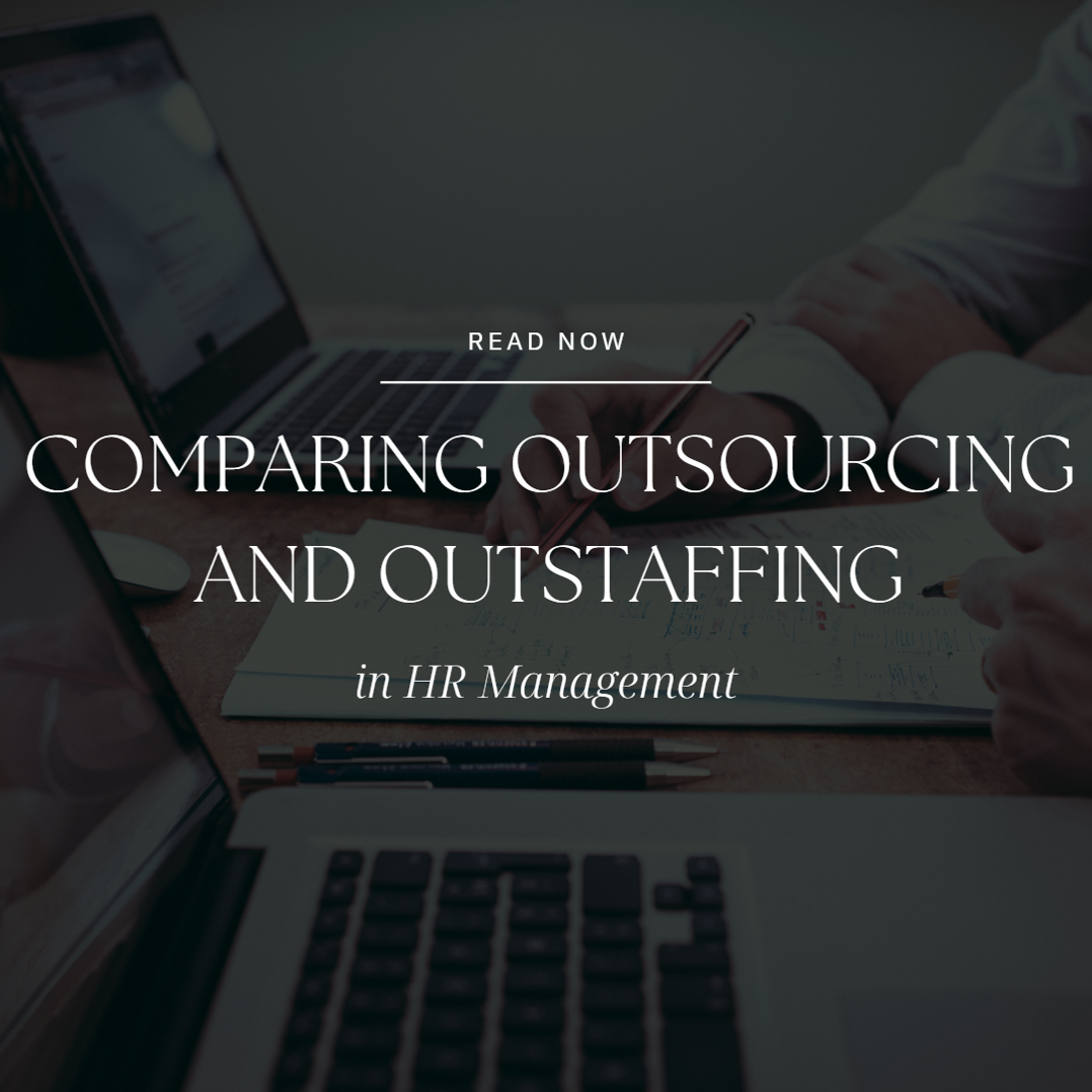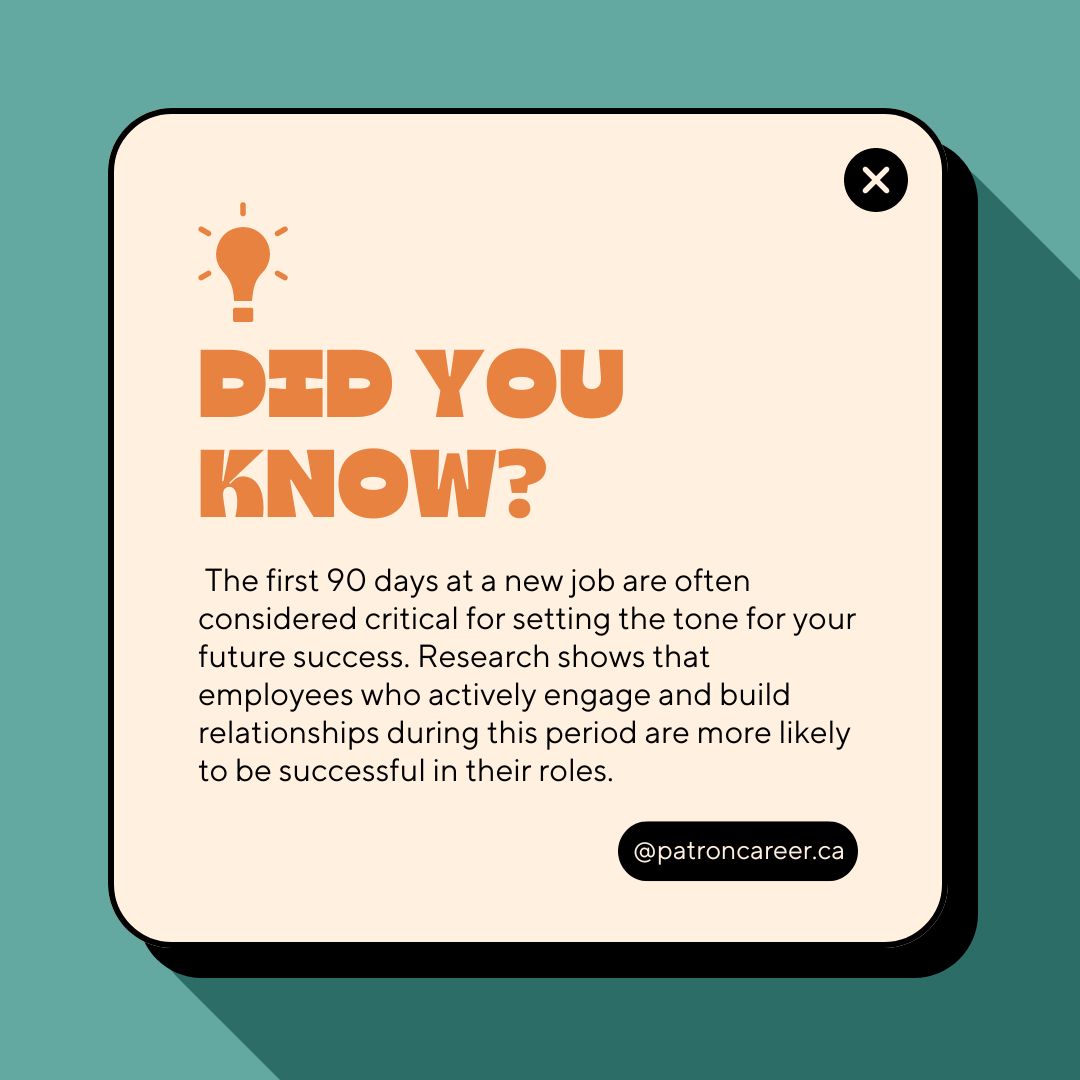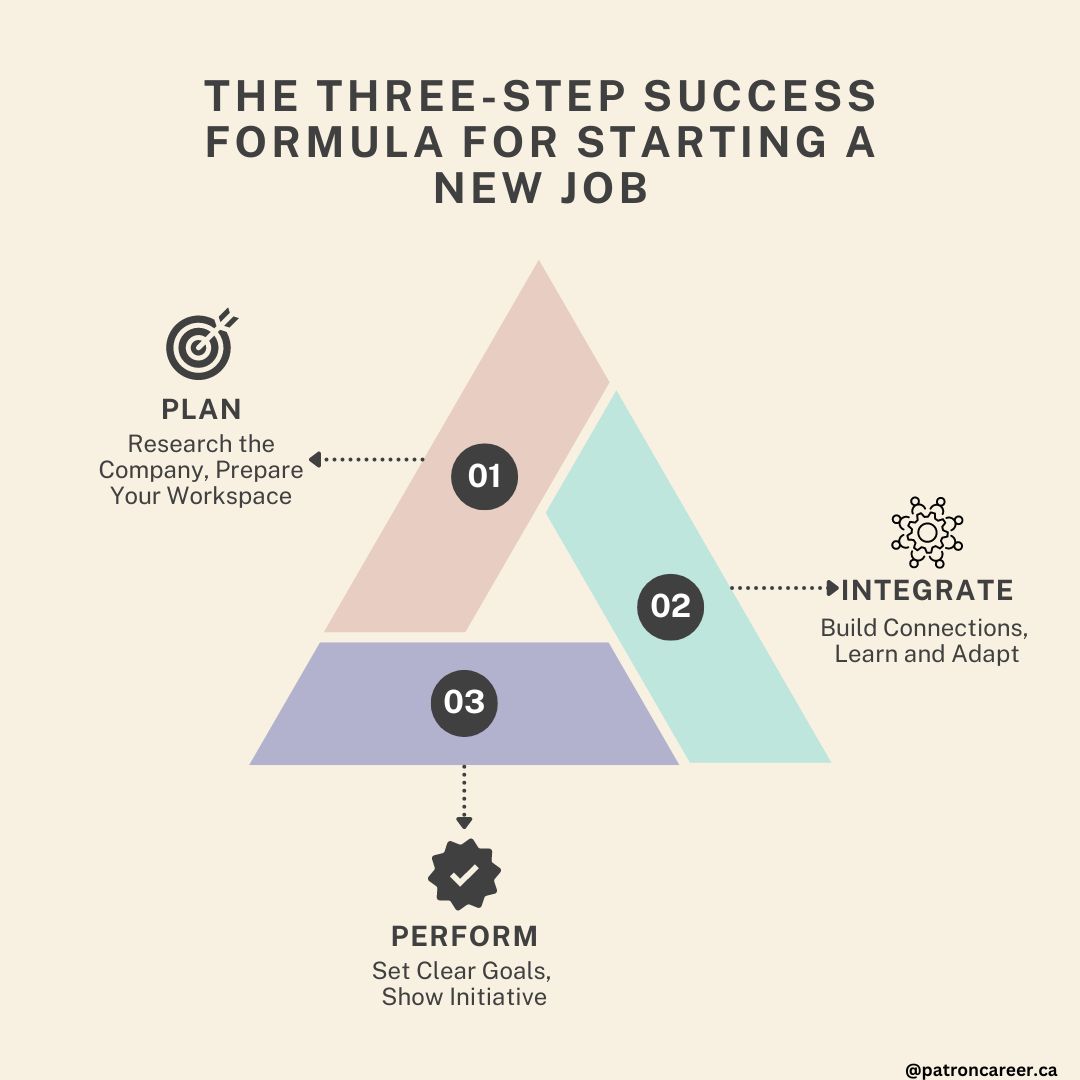
Outsourcing VS outstaffing in 2024
17 July, 2024
Patron Career Staffing firmly believes in adopting a tailored approach to meet temporary and permanent recruitment needs. We safeguard the interest of our clients by finding such workers who are knowledgeable and reliable.
About UsNeed help? Make a Call
32 Dundas Street East Unit A, L5A1W2

New job jitters are real. It can be altogether a vortex of challenges and excitement concerning new roles, colleagues, culture and workplace dynamics.
We understand the perplexity associated with adapting to a new environment and so today's article is centred around helping professionals transition smoothly and confidently into their new job.
By going through this article, you will be able to:
Why Should You Prepare to Transition to A New Job?
There are a host of reasons we can name for which you should prepare in advance for a new job. But essentially it allows individuals to maximize their success and build confidence.
As you gear up for a new job, it gives you enough time to organize your paperwork, loosening the strands of stress and confusion. You prepare yourself for tackling all adversities and have enough time to address your goals, make plans, and be in control of yourself. Take it this way- you are now capable of handling the challenges that present with the new job.
That said, one can understand key responsibilities that employers will expect and can start on important tasks right away.
How Can You Mentally Prepare for a New Job?
Yes, with advanced preparation and scrutiny of the job role, you can level up the game. Remember that for a smooth transition, preparing yourself mentally for the change is crucial. Accept first to adapt later. Embark on this new journey with vigour, grit and excitement to grab new opportunities. It is okay to go through jolts of excitement and nervousness. Having a positive mindset is a game-changer for a successful transition.

How Emotional Intelligence Impacts Job Transition
Your ability to feel and manage your emotions deeply affects your career ladder. You become self-aware of how emotions affect your behaviour. Self-awareness helps you to tap into your strengths and weaknesses, improve social skills and become more empathetic.
If you want to become more emotionally intelligent in the workplace and be able to make better career choices, read this blog now!
1. It's all about the First Impressions
When starting a new job, you encounter a diversity of people so delivering a good first impression is recommended. Being a professional, dress impeccably as per the company policy (if any) and choose attire that resonates with their culture.
To nail your first day at work, be sure to arrive at least 15-20 minutes early. The night before, gather all essential items and plan your route to avoid potential traffic or delays. Setting a routine for yourself and being punctual will eventually hone your time management skills as well.
2. Grasp what their Company Culture is like
Before stepping into your new job, it is important to learn the company culture and norms, because not every company culture is alike. Interest yourself in the company’s values, products, goals, achievements and expectations. learn their way of doing things and understand the work dynamics properly. On the first day, introduce yourself with a friendly disposition and make an effort to remember names. It helps a lot in connecting with colleagues, making new job friends and leaving a positive impression.
Bonus tips:
3. Embrace your Role with finesse
After you accept the job offer, spend time making notes of the expectations and responsibilities attached to the position. This will help you get a clear understanding of how to perform your job properly. See if you can schedule a prior meeting with your manager to discuss your role, key objectives and what they would want you to achieve in the first 30 days of your job.
Also, if you want to stay one step ahead of others, consider setting HARD Goals that test you by pushing you out of your comfort zone and boosting your chances of success.
4. Build Healthy Relationships at work
Starting a new job is also about building rapport with new colleagues to get work done easily. Your chances of a smooth transition escalate when you engage in friendly discussions and communications with colleagues, and supervisors. Pair up with a mentor or an experienced colleague to gain insight into the company culture and its code of conduct. They will walk you through essential company policies, and norms that will naturally accelerate your learning process.
5. Stay up to speed with Tools and Technologies
Another important step for a smooth transition into your new job is to familiarize what software and tools are utilized in your new workplace. This will enhance your workplace productivity and help you become a valuable team player. Learn all the functionalities, utilize online tutorials and be inquisitive by asking questions.
Many companies have an on-the-job training plan for new hires to ease them into gaining practical know-how of the job position. Thus, participate in such individualized training sessions and employee onboarding to understand the tools and tech you’ll be using daily.
6. Your Me Time should matter
We often underpin the importance of maintaining work-life harmony in the career hustle. Before you step into your new job, ensure how you plan to find your zen- balance your personal and professional lives. See, beyond 9-to-5 is not just a buzzword, it will help you manage work stress, prioritize people and goals and also maintain your overall well-being. With cutthroat competition to excel in a company, employees fail to set boundaries which deeply affects their productivity and can also cause burnout.
Did you know that inadequate breaks are one of the silent killers of productivity in the workplace? Hence, from day one strive to achieve work-life balance and balance ambition with relaxation.
Additional Tips to Settle into Your New Job Smoothly

1. Visualize what your career will look like in the next 5 years and devise a long-term career development plan that targets professional goals
2. As you join the office, jump right into organizing your workspace to minimize distractions and you can also bring a few personal items to make it homely and comfortable.
3. As progress is made, ensure to celebrate your small wins. It will boost your morale and job engagement.
4. Do not hesitate to seek support and use employee assistance programs whenever necessary.
5. Ask for regular feedback from managers and ensure to work on your areas of improvement.
6. Learn the art of time management by creating timetables, avoiding multitasking and practicing the 80/20 rule.
7. Participate in your company events and team-building activities to ease into the new role and build rapport with team members.
8. Don’t fear failures, learn from your mistakes and stay consistent with your progressive journey.
9. Always take notes. Keep a small notebook to jot down important information or use a planner to manage your tasks and time effectively.
